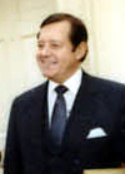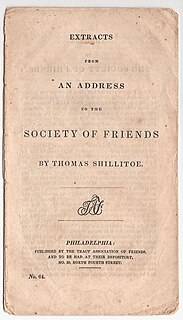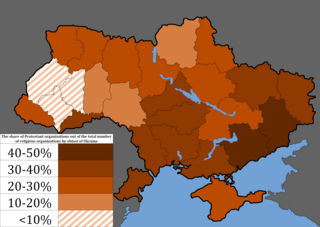This article needs additional citations for verification .(April 2007) |
This article needs additional citations for verification .(April 2007) |
Faith based services provide access to activities, events and counselling that allow students to pursue spiritual growth and development. Many campuses offer multi-faith spaces, ministering to those who identify with a specific religious group or those who consider themselves spiritual but not religious. [1]
Many Canadian universities offer multi-faith chaplaincy services. Chaplains may offer faith-specific support and counselling for students, staff, and faculty dealing with stress, grief or loneliness, or they can be present for non-religious students with questions about faith and for those wrestling with spiritual meaning in their lives. Overall, chaplains are committed to supporting the spiritual well-being of the university community using a holistic approach. Chaplains can run worship services, social events, or meal programs. [2] Universities may offer multi-faith rooms for prayer or reflection.
The need for pastoral services in secular universities can be traced back to the writings of John Henry Newman advocating for societies of Catholic students to be established at secular universities in England. The rising popularity of public universities in many parts of the world over sectarian private universities also necessitated a need for Christian ministerial services for students. At the same time Christian churches in the vicinity of colleges and universities may provide worship and ministerial services to local students. [ citation needed ]
In the United States there are about 250 Catholic Newman Centers that minister to Catholic students at public universities. They trace their origin to the Newman movement and are ministered by laypeople, local parishes, or religious institutes. [3] More recently, lay apostolates such as the Fellowship of Catholic University Students (FOCUS), established in 1997, are ministering to and re-evangelizing Catholic university students and young adults. [4]
LDS Student Association of The Church of Jesus Christ of Latter-day Saints
Protestant Christian and ecumenical groups following their establishment also created ministries especially focused on evangelizing students. One most recognizable group is Cru, originally known as Campus Crusade for Christ, an interdenominational Christian ministry established in 1951 on the campus of UCLA which has ministries in over a thousand universities. [5] Various other evangelical groups have worldwide networks of campus ministries including the International Fellowship of Evangelical Students, World Student Christian Federation, and The Navigators. Often Protestant denominations will also have a related para-church student fellowship ministry or college group directly or indirectly affiliated with their denomination, sometimes named by it. Additionally, independent churches will often have college ministries which may extend onto constituent college campuses in the form of a student organization. List of multi-campus protestant college ministries:

The Second Great Awakening was a Protestant religious revival during the early 19th century in the United States. The Second Great Awakening, which spread religion through revivals and emotional preaching, sparked a number of reform movements. Revivals were a key part of the movement and attracted hundreds of converts to new Protestant denominations. The Methodist Church used circuit riders to reach people in frontier locations. The Second Great Awakening led to a period of antebellum social reform and an emphasis on salvation by institutions. The outpouring of religious fervor and revival began in Kentucky and Tennessee in the 1790s and early 1800s among the Presbyterians, Methodists and Baptists.

William R. Bright was an American evangelist. In 1951 at the University of California, Los Angeles he founded Campus Crusade for Christ as a ministry for university students. In 1952 he wrote The Four Spiritual Laws. In 1979 he produced the film Jesus.

Cru is an interdenominational Christian parachurch organization. It was founded in 1951 at the University of California, Los Angeles by Bill Bright and Vonette Zachary Bright. Since then, Cru has expanded its focus to include adult professionals, athletes, and high school students. In 2020, Cru had 19,000 staff members in 190 countries.

The charismatic movement is the international trend of historically mainstream Christian congregations adopting beliefs and practices of Charismatic Christianity similar to Pentecostalism. Fundamental to the movement is the experience of baptism with the Holy Spirit and the use of spiritual gifts (charismata).
Parachurch organizations are Christian faith-based organizations that work outside and across denominations to engage in social welfare and evangelism. Parachurch organizations seek to come alongside the church and specialize in things that individual churches may not be able to specialize in by themselves. They often cross denominational and national boundaries providing specialized services and training.

A Christian mission is an organized effort for the propagation of the Christian faith. Missions involve sending individuals and groups across boundaries, most commonly geographical boundaries, to carry on evangelism or other activities, such as educational or hospital work. Sometimes individuals are sent and are called missionaries. When groups are sent, they are often called mission teams and they do mission trips. There are a few different kinds of mission trips: short-term, long-term, relational and those that simply help people in need. Some people choose to dedicate their whole lives to mission. Missionaries preach the Christian faith, and provide humanitarian aid. Christian doctrines permit the provision of aid without requiring religious conversion. However, Christian missionaries are implicated in the genocide of indigenous peoples. Around 100,000 native people in California, U.S., or 1/3 of the native population, are said to have died due to missions.

P'ent'ay is an originally Amharic–Tigrinya language term for Pentecostal and other Eastern-oriented Protestants within Ethiopia and Eritrea, and the Ethiopian and Eritrean diaspora. Today, the term refers to all Evangelical Protestant denominations and organisations in Ethiopian and Eritrean societies as Ethiopian–Eritrean Evangelicalism or the Ethiopian–Eritrean Evangelical Church. Sometimes the denominations and organizations are also known as Wenigēlawī.
Religion in Trinidad and Tobago, which is a multi-religious country, is classifiable as follows:

Protestant denominations arrived in the Philippines in 1898, after the United States took control of the Philippines from Spain, first with United States Army chaplains and then within months civilian missionaries.

The term Evangelical Catholic is used in Lutheranism, alongside the term Augsburg Catholic, with those calling themselves Evangelical Catholic Lutherans or Lutherans of Evangelical Catholic churchmanship stressing the catholicity of historic Lutheranism in liturgy, beliefs, practices, and doctrines. Evangelical Catholics teach that Lutheranism at its core "is deeply and fundamentally catholic". The majority of Evangelical Catholic Lutheran clergy and parishes are members of mainstream Lutheran denominations.

A tract is a literary work and, in current usage, usually religious in nature. The notion of what constitutes a tract has changed over time. By the early part of the 21st century, a tract referred to a brief pamphlet used for religious and political purposes, though far more often the former. Tracts are often either left for someone to find or handed out. However, there have been times in history when the term implied tome-like works. A tractate, a derivative of a tract, is equivalent in Hebrew literature to a chapter of the Christian Bible.

More than 70% of the population of Botswana is Christian, with most being members of the Anglican, United Congregational Church of Southern Africa, the Methodist Church of Southern Africa, and African independent churches. Anglicans in Botswana are part of the Church of the Province of Central Africa. Membership in the Roman Catholic Church includes about 5% of the nation's population.

Christianity is the most prevalent religion in the United States. Estimates from 2017 suggest that between 65% and 75% of the US population is Christian. More recent estimates from 2021 suggest that 63% of the US population is Christian. The majority of Christian Americans are Protestant Christians, though there are also significant numbers of American Roman Catholics and other minority Christian denominations such as Mormons, Orthodox Christians and Jehovah's Witnesses. The United States has the largest Christian population in the world and, more specifically, the largest Protestant population in the world, with nearly 210 million Christians and, as of 2021, over 140 million people affiliated with Protestant churches, although other countries have higher percentages of Christians among their populations. The Public Religion Research Institute's "2020 Census of American Religion", carried out between 2014 and 2020, showed that 70% of Americans identified as Christian during this seven-year interval. In a 2020 survey by the Pew Research Center, 65% of adults in the United States identified themselves as Christians. They were 75% in 2015 70.6% in 2014, 78% in 2012, 81.6% in 2001, and 85% in 1990. About 62% of those polled claim to be members of a church congregation. The modern official motto of the United States of America, as established in a 1956 law signed by President Dwight D. Eisenhower, is "In God We Trust". The phrase first appeared on U.S. coins in 1864.

Protestants in Ukraine number about 600,000 to 700,000 (2007), about 2% of the total population. Nearly all traditional Protestant denominations are represented in the country. According to Christianity Today magazine, Ukraine has become not just the "Bible Belt" of Eastern Europe, but a "hub of evangelical church life, education, and missions". At present, the country is a key supplier of missionaries and a center of evangelical training and press printing for all the countries of the former Soviet Union, where the legal environment is not so favourable.

The United Church of Christ in the Philippines is a Christian denomination in the Philippines. Established in its present form in Malate, Manila, it resulted from the merger of the Evangelical Church of the Philippines, the Philippine Methodist Church, the Disciples of Christ, the United Evangelical Church and several independent congregations.

Protestantism is a form of Christianity that follows the tenets of the Protestant Reformation: a major movement within Western Christianity that began in the 16th century against what its followers perceived to be errors, abuses, innovations, discrepancies, and theological novums within the medieval Catholic Church.